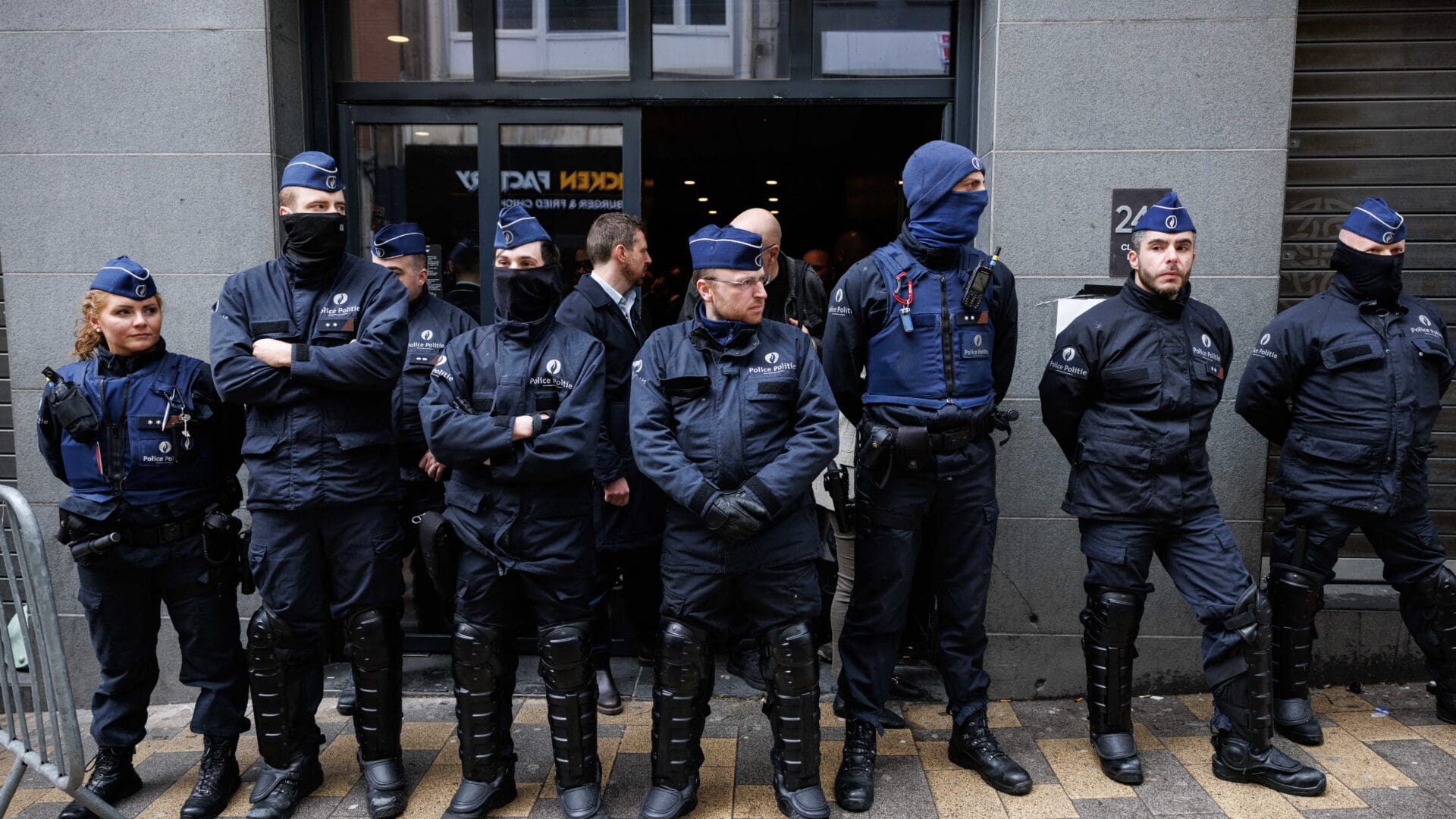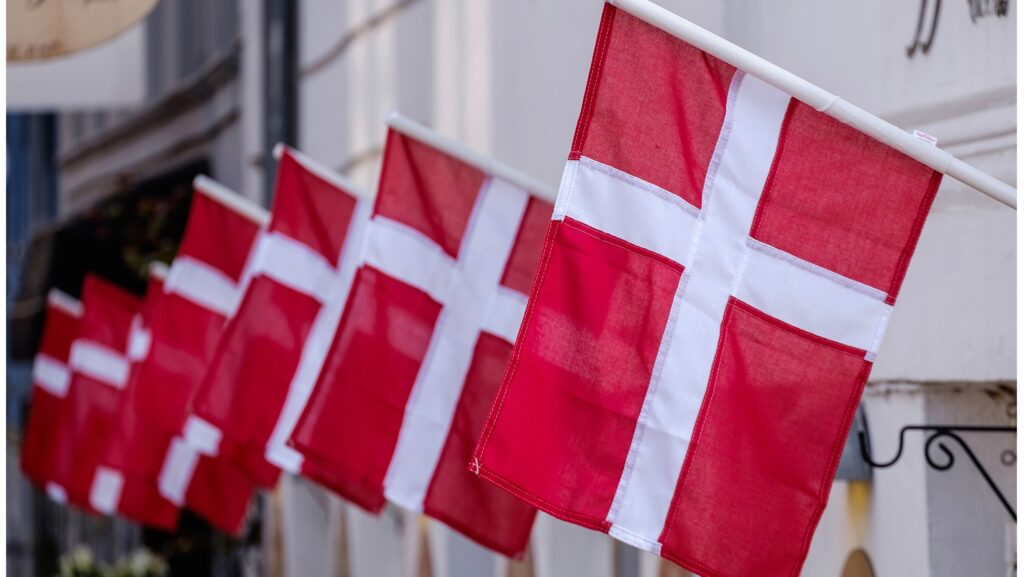European liberals are clearly trembling with fear ahead of the forthcoming European elections, a sentiment that has been evident for months. Smear campaigns, full of half-truths and distortions against right-wing parties gaining strength across Europe—as exemplified by the case of the Alternative for Germany (AfD) in January—, coupled with the persistent demonization of right-wing leaders and a deliberate diversion from addressing the negative consequences of flawed political decisions made by the European Left all attest to the prevailing anxiety within the progressive camp.
However, this week unexpected events have unfolded, potentially bolstering the prospects of a right-wing victory and prompting a re-strategizing of the campaign with less than two months remaining before the EP elections. Emir Kir, the mayor of the Saint-Joone district in Brussels, attempted to shut down the National Conservatism Conference (NatCon), attended by prominent figures from the European right, by deploying police to the event venue. However, Kir’s plan ultimately failed, or rather, backfired. The conference organizers were successful in having the mayoral order annulled in court so the event proceeded smoothly on the second day, giving rise to a new central theme in the right’s campaign:
the fight for freedom of speech.
Hungarian Prime Minister Viktor Orbán emphasized the need for freedom fighters to reassert themselves and take action in Europe during his speech on the second day of NatCon. The suppression of differing opinions by the left, the pervasive cancel culture, and the systematic stifling of dissent from the progressive mainstream have long been central concerns for almost all right-wing parties, thinkers, and politicians. However, the events surrounding NatCon have now made it abundantly clear that these issues are not so-called right-wing conspiracy theories. It is particularly noteworthy that these events unfolded in Brussels, the ‘capital of Europe’, with the tacit approval of the Brussels elite— the EU leadership and the left-wing majority in the European Parliament.
POLITICO Brussels published an article on Thursday titled ‘“Ridiculous own goal”: Brussels mayor gives Europe’s hard-right a free hit before EU election,’ in which they not only mockingly report on the conference, trivializing its significance, but also awkwardly attempt to explain and shift the blame onto the three Brussels mayors who played a role in trying to block the conference. Below are some extracts from the article:
‘But attempts by three local politicians to shut down the National Conservatism Conference triggered international outcry, handing the European Union arch-critics more ammunition than they could have dreamed of two months before the European election.’
‘Leaders around Europe, some of them right-wing, seized on the events as the ultimate proof of what they’ve been arguing all along: That Brussels is biased against them and overreaching into their spheres of power at home. (Even if, in this case, the Brussels that caused problems was not a faceless EU superstate governing 400 million people but, rather, a mayor with jurisdiction over some 27,000.)’
While leftist Belgian Prime Minister Alexander De Croo has condemned the decision made by Emir Kir, it is interesting to observe the reactions of other players on the European Left. There has been little commentary on the scandal, as liberals who are so vocal in supporting freedom of expression in countries like Hungary often remain silent in situations when free speech is genuinely threatened by one of their comrades. Guy Verhofstadt, arguably one of Hungary’s most outspoken critics in the European Parliament, referred to the Brussels mayor’s decision as a ‘ridiculous own goal’—a quote used in the title of the POLITICO article. Meanwhile, Daniel Freund, a German Green MEP known for his frequent criticisms of Viktor Orbán and the Hungarian government, made the following mocking remark on X: ‘When you think you’re battling the Woke and Globalist Elite but then you’re not even making it past this guy.’
Daniel Freund on Twitter: "When you think you're battling the Woke and Globalist Elite but then you're not even making it past this guy.(Emir Kir, Mayor of Sint-Josse-ten-Node, pop: 26.965) pic.twitter.com/mOvocD6tld / Twitter"
When you think you're battling the Woke and Globalist Elite but then you're not even making it past this guy.(Emir Kir, Mayor of Sint-Josse-ten-Node, pop: 26.965) pic.twitter.com/mOvocD6tld
Just the Tip of the Iceberg
The impact of these events on the outcome of the EP elections and their role in mobilizing right-wing voters remains uncertain. However, it is evident that the events validate the narrative of the right. Are the three Brussels mayors the sole culprits in what happened? Perhaps directly, yes, but indirectly, not entirely. This incident represents the culmination of a long-standing process in which the global left-wing elite plays has come to dominate institutions like the European Commission, the European Parliament, and various non-governmental organizations, think tanks, and so forth. These actors have long been engaged in efforts to
silence their political opponents across all available platforms and by any means possible.
One doesn’t need to look far back in time to find a strikingly similar, albeit more severe, assault on media freedom and freedom of expression compared to the events in Brussels. Following the Polish elections last October, a left-wing governing coalition led by Donald Tusk ascended to power in Eastern Europe’s dominant state. It didn’t take long for the new prime minister to assert his authority and launch an attack on the Polish public media. The methods employed were strikingly akin to those of the Brussels mayor, albeit with no impediment to Tusk executing his plan. Despite appeals from the former ruling party, Law and Justice (PiS), to Brussels, both the European Commission and the European Parliament remained conspicuously silent on the matter. Just a few months after the ‘restructuring’ of the public media, there were already news stating that Poland might access funds from the Recovery Fund and the Cohesion Fund, money that had been previously withheld due to concerns regarding the rule of law.
Another perfect example is Hungary. The country has long endured the adverse impacts of the left-wing opinion dictatorship. As Viktor Orbán highlighted at NatCon, the European Commission is progressively assuming the role of a political actor rather than serving as the guardian of the treaties. Given Hungary’s stark disagreement with the left mainstream on numerous critical issues, it finds itself in near-constant conflict with the aforementioned actors. This tension has escalated to the extent that Brussels is withholding over €20 billion from the country, citing various, often contentious, reasons—primarily stemming from Hungary’s opposing stance on migration, LGBTQ rights, gender ideology, and the conflict in Ukraine.
These factors likely influenced the decision of the Brussels mayor, who, emboldened by such circumstances, attempted to ban the right-wing rally, exceeding his powers and acting unconstitutionally. However, at higher levels, the left swiftly intervened and overturned the order—not necessarily out of concern for freedom of expression, but rather due to the realization of its counter-productivity less than two months before the elections.
The left already finds itself in a precarious position, compounded by numerous issues negatively affecting ordinary Europeans, many of which are directly or indirectly attributed to the left-wing majority elite in Brussels. These encompass a range of concerns, including farmers’ discontent over unresolved matters such as Ukrainian grain imports, the disproportionately adverse effects of policies like the Green Deal and the Common Agricultural Policy (CAP) on agriculture, misguided sanctions policies, and the ongoing escalation of the conflict in Ukraine, largely exacerbated by statements from left-wing politicians. These challenges demand effective responses,
ones that only the right can and will provide: a reality well understood by the electorate.
So, in June, the question extends beyond whether the EU will be guided by pro-peace or pro-war leaders in the next five years, or whether politicians who support or oppose farmers will hold sway in decision-making positions. It now also revolves around whether there will be room for voices divergent from the mainstream narratives in the future.
Read more on the upcoming European Parliament elections:








